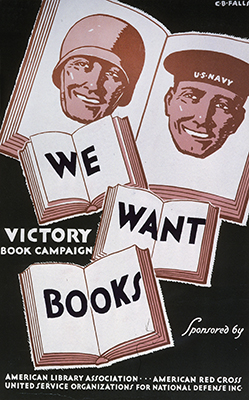Like hurricanes and volcanoes, most wars are not predictable even months before the event. in this sense, national intelligence estimates are no more divine than novels. but unlike bureaucrats’ estimates, novels are stories about human nature that entertain and often enlighten or remind us of the complexity called human nature. Consider these five novels about World War III.
You are reading: World war 3 books
1. World War III: August 1985. In this scenario, written by a group of retired British generals and admirals, the Warsaw Pact strikes across the inner German border. for a month, nato bravely defends itself. The convoy sea route across the Atlantic remains intact and the Soviet blitzkrieg stalls. To prevent a NATO counteroffensive, the Moscow Politburo drops a nuclear bomb on Manchester, triggering nuclear retaliation against Minsk. the Russian military then launch a coup, resulting in a ceasefire. why did the blitzkrieg pact fail? because the West had the advantage in electronics over gross Soviet output.
2. Yankee Team: A World War III Novel. using the same scenario, in 2016 the author harold coyle repeats the ground campaign on the german front, emphasizing the role of nato armor, especially the american ones. Superior in agility and range of firepower, NATO tanks achieve an astonishing trade-off in destroying Soviet armor. well-trained nato armored forces outmaneuver warsaw pact forces.
3. red storm rising. tom clancy and his writing team adopted the same basic blitzkrieg scenario of the warsaw pact. In this novel, however, the battle for the Atlantic is more central, as are American advantages in space and in the air. Soviet blitzkrieg fails for lack of supplies, fuel, and sustainable manpower. nuclear weapons are not used. in the end, the Russian military overthrows the politburo and agrees to a ceasefire that restores the previous status quo.
4. Ghost Fleet: A Novel of the Next World War. well written by p. w. singer and augusto cole, this future war of the twenty-first century repeats once again the war of the pacific of the second world war. China, allied with a fading Russia, conquers both space and the Pacific, to include Hawaii, with displays of digital magic. Europe declares neutrality, but the United States refuses to surrender. space dominance is regained and in a titanic naval battle, china loses.
See Also: Kim Stanley Robinson – Book Series In Order
5. 2034: a novel of the next world war. In this fantastic novel everything is possible by dreaming that it exists. Written by a retired four-star American admiral, 2034 reprises the ghost fleet into its setting. again, there is a Chinese-American. naval warfare in the pacific; Again, the Chinese, with the help of Russia, have a magical cyber weapon that sinks the American fleet. homage is paid to the slogans of today’s mainstream press. men and women in equal proportion are the key combatants; the American president is a woman; arctic ice has melted, etc. all the controls perform superbly, as do their crews. but magical cybernetic weapons defeat them. So the United States sends an aircraft carrier to drop nuclear bombs on Chinese cities. The Chinese send a carrier that does the same thing for us. the United States. Then it ceases to be a superpower, content to regress to the Brazil of North America. The book concludes that America had become narcissistic and decadent. India, aligned with Iran, emerges as the wise new global superpower.
The metathemes of these five novels reveal the authors’ assumptions about our society and its values. These assumptions are interesting to ponder:
once war occurs, these novels present politicians as essentially irrelevant. the outcome depended on generals/admirals on both sides, who made momentous campaign decisions/bets under intense time pressure.
cyber/digital electronics across the military spectrum, not overall material strength or force size, was the critical variable that determined success.
In no book does the press play a significant role.
only in the fifth novel, 2034, the united states falls apart. As described in the other four novels, the American people exhibit the same cohesiveness as in World War II. deprivation, destruction, casualties, and death do not lead to acceptance of defeat. when the united states backs down, it is because of a weapon of technological wonder (always cybernetic). in contrast, our generals and troops fight zealously as a trained team. the American people, and companies like google, rally behind the war effort.
See Also: 14 books about courageous women in the military – UNC-Chapel Hill Libraries
This metatheme contrasts with the current divide within our body politic and society as a whole. a relentless “awakening” ideology is replacing traditional norms and values in our society, to include our military. In the next great war, will our warriors have the right material? Will we fight as a nation with the same unified determination that ensured our victorious exit from World War II?
the novels cited:
General Sir John Hackett (Ret.), World War III: August 1985 (New York: Macmillan Publishing Co., 1978)
harold w. coyle, yankee team, a world war iii novel (havertown, pa, casemate publishers, 2016)
tom clancy, red storm rising (new york: g. p. putnam, 1986)
p. w. singer and augustus cole, ghost fleet, a novel of the next world war, (new york: houghton mifflin, 2015)
elliot ackerman and admiral james stavridis, 2034: a novel of the next world war (new york: penguin, 2021)
See Also: The Definitive Guide To All The Books Becoming Movies In 2022
